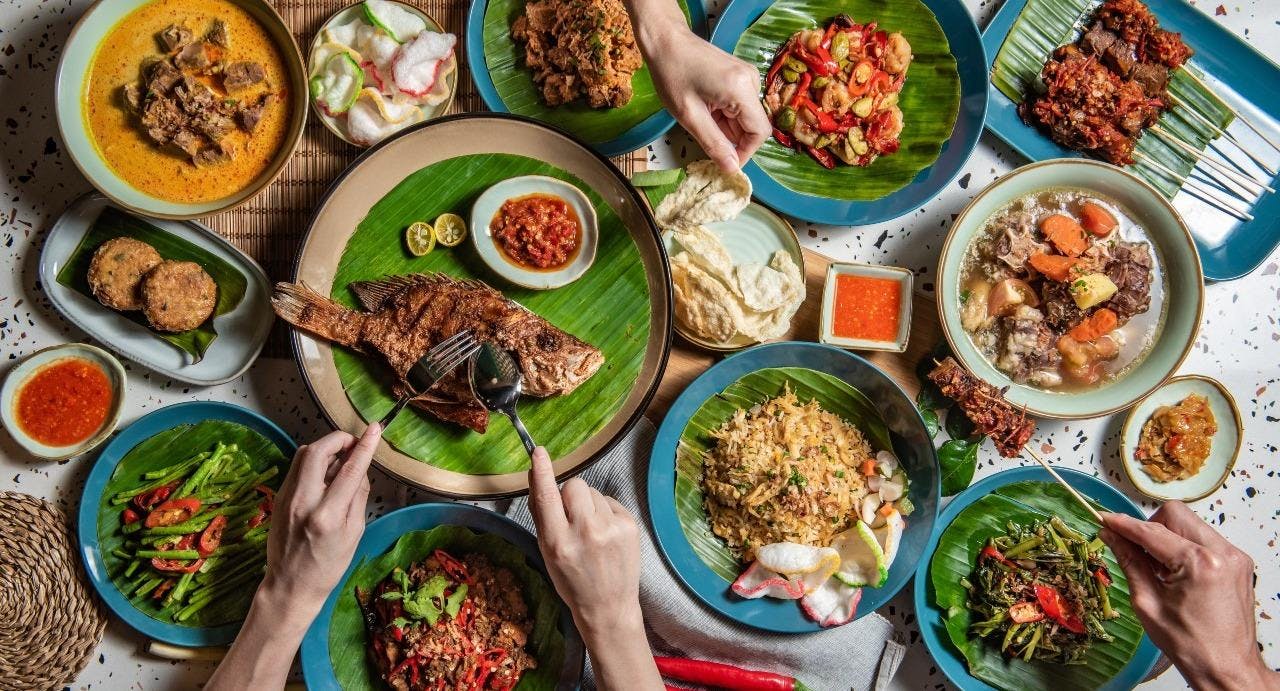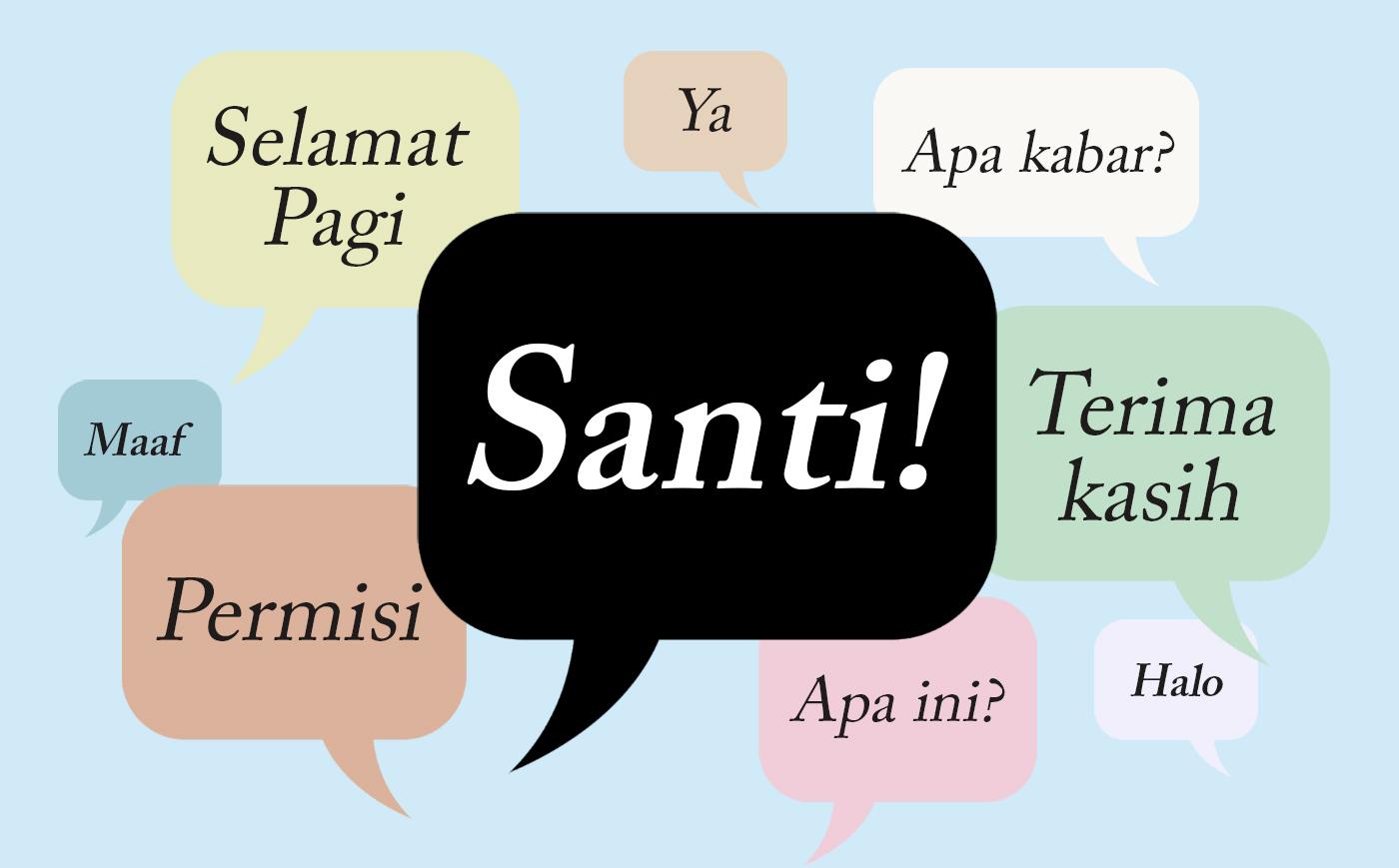Updated on April 26, 2024
If you’re planning to visit Bali, you might want to learn a thing or two about the language spoken on the island. Though most Indonesians or Balinese speak English and you probably won’t have any problems communicating with the locals, it’s still a good idea to learn a few local phrases before you get there. Learning the local language helps break down the language barrier and encourages a more friendly interaction. Not to mention it also helps you find your way around from your hotel or a private luxury retreat rental, haggle when shopping, and avoid miscommunication.
While we are unable to freely travel, for now, one of the things we can do to keep the travel spirit alive is to prepare for future travels. One of the ways you can do that is to learn basic phrases for the places you plan to visit down the road. Before we jump into the most useful phrases for tourists, let’s briefly discuss what language is widely used in Bali.
Related article: Types of Luxury Villas You Will Find in Bali, 5 Best Areas to Rent a Private Luxury Villa in Bali
Bahasa Indonesia Versus Balinese

Bahasa Indonesia is the country’s national language. Every Indonesian knows how to speak Bahasa Indonesia, but not every Indonesian knows how to speak Balinese.
The local language spoken on the island of Bali is different from the national language. Bahasa Indonesia is a language derived from the Malaysian language as this was needed by Indonesian traders many centuries ago. It was only in 1945 that Bahasa actually became the country’s official language.
Balinese, or Basa Bali, on the other hand, is a language that’s quite different from the national language as it has a more Malayo-Polynesian origin. The language that best resembles Balinese is Javanese, as compared to Bahasa Indonesia. Some other neighboring areas also speak Balinese, such of Nusa Penida, Java and Lombok.
Therefore, you might discover that the language spoken in Bali might be different than the language spoken in Jakarta, for example. There are actually hundreds of languages in Indonesia and Balinese and Bahasa are just two of them.
Today, Balinese is mostly used in spoken form and informal communication between family members, friends other locals. It is also used in more traditional situations such as Balinese weddings and temple ceremonies.
Related article: Basic Balinese Etiquette to Keep in Mind When Visiting Bali
There are 3 different speech levels of Balinese – low (basa ketah), middle (basa madia), and high (basa singgih). A speaker conforms their vocabulary based on factors such as their relative caste position and the formality and appropriateness of the social situation. High level Balinese is used for temple ceremonies, court language and addressing important members of the community, middle level when some degree of politeness and respect is still desired (towards parents, teachers, etc.), and low level vernacular for casual everyday conversations with friends, for example. Although vocabulary correctness is excusable for foreigners, this makes Balinese a much harder language to grasp.
Now that you have some understanding of the difference between the national language of the country and the local language in Bali, it’s now time to introduce some basic phrases that you may find handy on your visit.
Useful Indonesian Phrases for Tourists

Due to the intricacies of Balinese, learning basic Indonesian is more practical for a tourist. An added advantage is that Indonesian is more universally spoken in the entire country and is widely used in the tourism sector in particular.
These phrases are by no means an introduction to actually carrying a conversation in Indonesian but to serve the purpose of understanding simple phrases. An effort to speak the language is also a sign of courtesy and enthusiasm to a local, who will most likely be amused by a tourist knowing how to speak in the local language.

Essentials
Halo – “Hello”
Permisi – “Excuse me”
Terima kasih – “Thank you”
Sama-sama – “You’re welcome”
Ya – “Yes”
Tidak – “No”
Oke – “Okay”
Tolong – “Help”
Maaf – “Sorry”
Apa ini? – “What is this?”

Simple Greetings
Selamat Pagi – “Good Morning”
Selamat Siang – “Good Afternoon”
Selamat Sore – “Good Evening”
Selamat Malam – “Good Night”
Apa kabar? – “How are you?”
Baik saja – “I’m fine”
Nama saya ______. – “My name is ______. ”
Nama kamu siapa? – “What is your name?”
Salam kenal – “Nice to meet you”
Santi! – “Cheers!”
Selamat tinggal, or Dadah! (informal) – “Goodbye”
Sampai Jumpa! – “See you!”

Other Useful Words & Phrases
Belok kanan – “Turn right”
Belok kiri – “Turn left”
Lurus terus– “Go straight”
Dekat – “Near”
Jauh – “Far”
Di mana… – “Where…” (Ex. “Di mana toilet?”)
Berapa? – “How much?”
Murah – “Cheap”
Mahal – “Expensive”
Terlalu mahal – “Too expensive”
Saya Vegetarian – “I’m a vegetarian”
Tidak terlalu pedas – “Not too spicy”
Ini enak! – “It’s delicious!”
Related articles: A Taste of Balinese Cuisine, Top Luxury Restaurants in Bali and Their Cuisine Specialty
Being able to speak simple phrases and words in the local language goes a long way when interacting with locals. It also allows you to immerse and experience Balinese culture the authentic way, as well as reciprocate the kindness they offer you in a more genuine way.
The mere mention of “Terima kasih!” which means “Thank you!”, can put a wide smile on their faces. Furthermore, it shows your respect and humility for having given the opportunity to explore the beautiful island they call home.
Related article: 10 Fun Facts About Bali, Indonesia, 10 Reasons Bali Should Be Your Next Destination
–
All of our luxury private villas in Bali are serviced by highly-capable English-speaking staff, contact The Luxury Signature to book your unforgettable Balinese holiday retreat. Learn more about the island of Bali.







